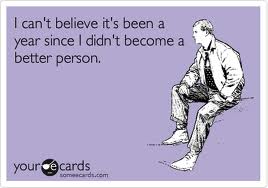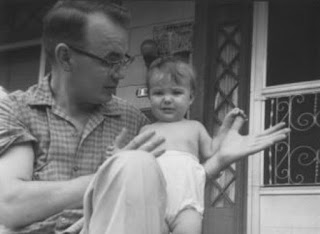So far in my life I’ve meditated for a squirrel twice. Both times were during periods of feeling numbed out on the love front. It wasn’t that I didn’t love people during this period; I did. I just couldn’t quite feel love—delight in its tender quality. We all have these lack-of-love power outages, even in regard to our children, partners, best friends—people we’d give our life for, but who, on some days, occupy the “I’m just not that into you at the moment” space.
Most times this is nothing to worry about. Our partner shows up in the kitchen with sleepy morning hair, and we pick up the thread of affection. Our child comes out to the car to help us bring in a bag of groceries, and suddenly we’re back on the loving track. But there’s never a guarantee that a felt sense of love will arise again, so it makes sense that we might put forth intentional effort to keep our heart tuned to love.
It was during a loving-kindness meditation, which involves bringing to mind someone for whom we can easily feel love, that I realized that I couldn’t easily feel love for anyone in that particular moment. I ran down my list of usual people, checking in with my heart to see if a feeling of tenderness arose. Nada. I couldn’t even tap into a feeling of love for myself on this morning, which, of course, is precisely why I couldn’t tap into feeling love beyond myself, so I just continued to sit and focus on my breath. Some days this is simply what happens, and I reminded myself that during these “beige” times that a meditation practice supports our best intention of just extending a sense of friendliness to ourselves...period.
 |
| Sometimes I don't |
But suddenly I saw a squirrel walk across my deck rail and stop at a flower pot. I had noticed him weeks before and had named him Mr. White Chest, watching him return again and again to bury nuts. This day I watched him dig up a nut and stand on his hind legs to crack it with his teeth. I felt a tenderness. It wasn’t a tears-rolling-down-the-cheeks tenderness, but there was a softness that hadn’t come from thinking of, say, even my mother, whom I love dearly. On this morning, tapping into how I felt about Mr. White Chest had allowed me to reconnect with the tender heart that I knew was there all along, but that I just couldn’t find my way back to.
The second time that a squirrel brought me back to feeling love was while I was on a solo retreat. I had traveled from my Virginia home to spend 5 weeks alone in a remote area of Pennsylvania. It was solidly winter when I arrived, and my days consisted of meditating, building fires, meditating, preparing and eating meals, meditating, sleeping, meditating, and more meditating. The morning after I arrived I awoke to the sound of frantic scratching coming from inside the wall behind my head. I grabbed my phone and called Javier back home in Virginia. And while it felt oh-so-soothing to hear his voice, when I hung up, I was still alone, and the scratching was still there.
 |
| Frozen: February 2009, Nuangola, PA |
The scratcher had fallen down an old chimney that had no escape route. The exterminator said that it was likely a squirrel that was doing the scratching, probably being kept alive by snow and the nuts that had fallen from trees, and that it could go on for a bit, but that it wouldn’t be permanent. As l heard him say that it was likely a squirrel, my mind went to a weird place—that maybe it wasn't a squirrel at all, that maybe it was some creepy person who was watching me sleep at night and trying to scratch its way through the wall during the day.
I continued to meditate, ending each meditation with the usual dedication that we all stop suffering (by now I really meant that for myself in a big way). Eventually I was able to genuinely include even “the scratcher.” During one of my meditations the scratching got so loud that I yelled, “May you be free from suffering, you little bastard.” Later that day I looked up to see a tiny hole in the wall. It was trying to enter my space; I wanted the bastard to suffer a lot. I grabbed the phone and called Javier again, who advised me to push a piece of furniture against the wall. I was sleep-deprived and weepy, but I was determined not to go home because of a maybe squirrel.
Later that day the scratching got less and less, like something done out of sheer habit in the absence of actual hope. I cried like a baby for the poor thing that was stuck. It was alone. So was I. It was frantic. So was I. It was dying. So was I. In that moment the love that I felt for the squirrel, and for myself, was full and honest; in fact (and it feels silly to even say this), I still have a deepened feeling for squirrels. I write about this because I see that, once again, the squirrels are visiting the flower pots on the back deck. Each year this opens my heart in a way that many other things don’t.
May my heart continue to be touched in unexpected ways, and may the genuine heart of love expand to all living beings. Squirrels included.
 |
| Spring works miracles on the heart |
I Know the Way You Can Get
-Hafez
I know the way you can get
When you have not had a drink of Love:
Your face hardens,
Your sweet muscles cramp.
Children become concerned
About a strange look that appears in your eyes
Which even begins to worry your own mirror
And nose.
Squirrels and birds sense your sadness
And call an important conference in a tall tree.
They decide which secret code to chant
To help your mind and soul.
Even angels fear that brand of madness
That arrays itself against the world
And throws sharp stones and spears into
The innocent
And into one’s self.
O I know the way you can get
If you have not been drinking Love:
You might rip apart
Every sentence your friends and teachers say,
Looking for hidden clauses.
You might weigh every word on a scale
Like a dead fish.
You might pull out a ruler to measure
From every angle in your darkness
The beautiful dimensions of a heart you once
Trusted.
I know the way you can get
If you have not had a drink from Love’s
Hands.
That is why all the Great Ones speak of
The vital need
To keep remembering God,
So you will come to know and see Him
As being so Playful
And Wanting,
Just Wanting to help.
That is why Hafiz says:
Bring your cup near me.
For all I care about
Is Quenching your thirst for freedom!
All a Sane man can ever care about
Is giving Love!



















